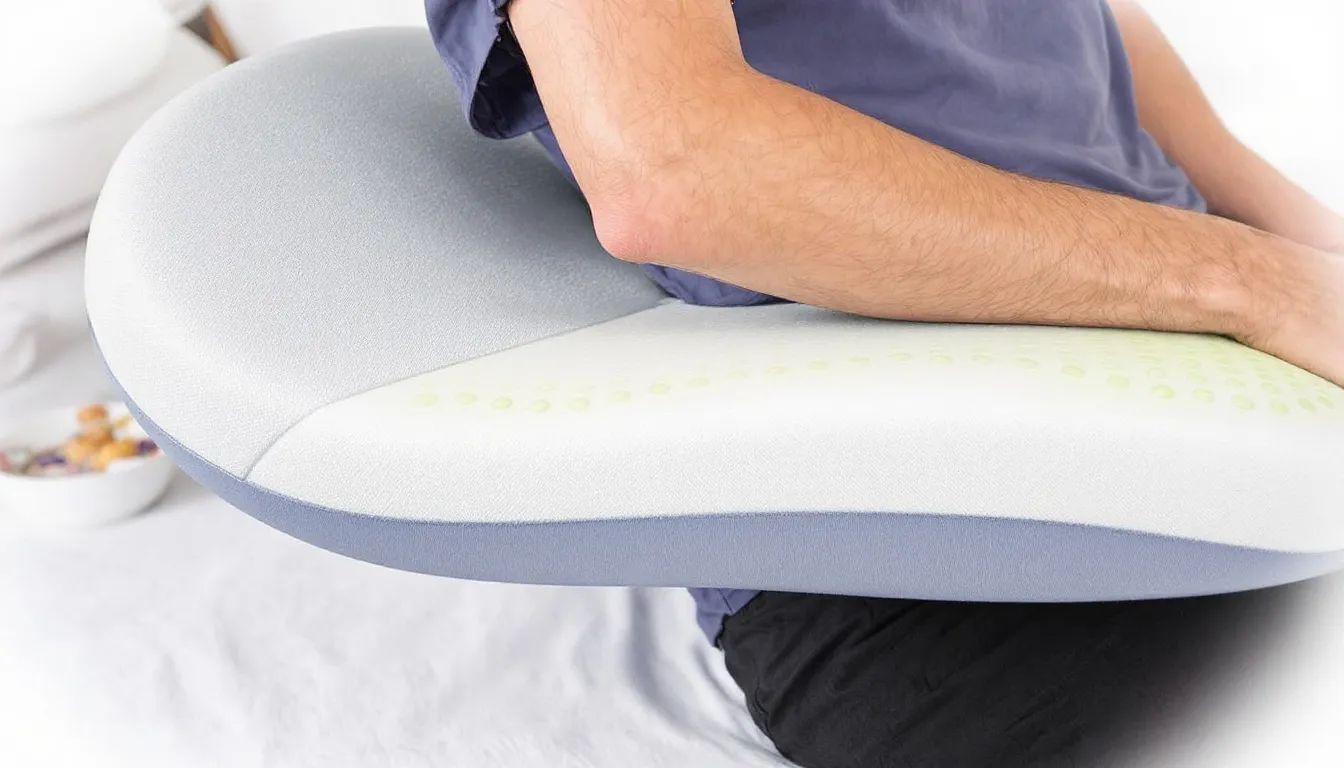Essential Tips for Avoiding Pressure Wounds - Trinity Wound Care
- Blog
- Blog Detail
Preventing and Avoiding Pressure Wounds: Essential Tips and Strategies

Worried about pressure wounds due to prolonged immobility?
This article offers crucial tips and strategies for avoiding pressure wounds and maintaining healthy skin.
Key Takeaways
- Pressure wounds are serious injuries caused by constant pressure on the skin, primarily affecting bony areas, and recognizing early signs is essential for effective intervention.
- Effective prevention strategies include regular repositioning, diligent skin care, and using supportive devices to relieve pressure and maintain skin integrity.
- A balanced diet rich in essential nutrients is crucial not only for preventing pressure wounds but also for promoting healing, highlighting the importance of comprehensive care.
Pressure wounds, also known as bedsores or pressure ulcers, are a significant health concern for individuals with limited mobility. These injuries occur when constant pressure on the skin reduces blood flow, leading to tissue damage and potentially severe complications if left untreated.
Understanding the causes and implementing effective prevention strategies are crucial steps in maintaining skin integrity and promoting overall well-being. This article provides essential tips and strategies to help you avoid pressure wounds and ensure healthy skin, whether for yourself or a loved one.
Understanding Pressure Wounds
Pressure wounds, also known as bedsores, pressure ulcers, or decubitus ulcers, occur when constant pressure disrupts the blood flow to the skin, leading to developing pressure ulcers, tissue damage, cell death, and pressure injury.
These injuries primarily develop on skin covering bony areas of the body, such as:
- the heels
- ankles
- hips
- tailbone
When blood flow is compromised for extended periods, the skin and underlying tissues begin to break down, resulting in painful sores that can vary in severity from mild redness (Stage 1) to deep wounds exposing muscle or bone (Stage 4).
Recognizing the signs of pressure wounds early is critical. Initial symptoms may include pain, itching, and skin discoloration. Without intervention, these wounds can progress quickly, necessitating more intensive treatment and potentially leading to long-term damage.
Grasping how deep tissue pressure injury wounds develop is key to preventing and managing them effectively.
Key Risk Factors for Developing Pressure Wounds
Certain individuals are at a higher risk of developing pressure wounds due to various health conditions and lifestyle factors. Those with limited mobility, such as individuals with paralysis, those in a coma, or bedridden patients, are particularly vulnerable. Difficulty in moving and changing positions independently significantly increases the risk of pressure sores, as these individuals cannot easily relieve pressure on their skin.
Age is another critical factor; older adults, especially those over 70, are more susceptible to pressure wounds due to thinner skin and reduced blood circulation. Medical conditions like diabetes, which impair blood flow, or any condition that causes fragile skin and other risk factors, further elevate the risk.
Creating personalized prevention plans and conducting regular risk assessments can significantly help those at high risk avoid pressure injuries.
Effective Strategies to Prevent Pressure Wounds

A proactive and comprehensive approach is necessary for preventing pressure sores. Key strategies include regular repositioning, meticulous skin care, and using devices designed to alleviate pressure. These methods not only prevent pressure sores but also aid in healing existing wounds.
Frequent repositioning is vital for those at risk of pressure ulcers. Regular changes in position boost blood circulation and prevent prolonged pressure on specific body parts.
Skin care and moisture management are equally important, as clean and dry skin is less likely to break down. Lastly, supportive devices like specialized cushions and mattresses play a vital role in redistributing weight and reducing the risk of pressure injuries.
Regular Repositioning
Changing positions frequently is one of the most effective ways to prevent pressure sores. For those confined to a bed, repositioning should occur at least every two hours, while individuals in wheelchairs should change positions every 15 minutes. This routine helps enhance blood circulation and reduces the risk of skin breakdown by relieving pressure on vulnerable areas.
A repositioning schedule can dramatically prevent pressure wounds. Caregivers and healthcare providers must regularly move at-risk individuals, whether in bed or a chair. This simple yet effective strategy can greatly reduce pressure injuries and promote skin health.
Skin Care and Moisture Management
Keeping the skin clean and dry is crucial to preventing pressure wounds. Regular cleaning and using moisture barrier creams can safeguard the skin from damage caused by bodily fluids. These creams form a protective layer, maintaining skin integrity, especially in moisture-prone areas.
Skin care routines should involve gentle cleansing and thorough drying, especially around bony areas like the shoulder blades and hips. Effective moisture management is essential to prevent skin irritation and breakdown, common precursors to pressure sores.
Adopting consistent skin care practices can significantly lower the risk of these painful injuries.
Using Supportive Devices
Specialized cushions and mattresses redistribute weight and alleviate pressure on vulnerable body areas. These devices are particularly beneficial for bedridden individuals or those in wheelchairs, as they help prevent skin breakdown by evenly distributing pressure.
High-quality supportive devices can greatly help prevent pressure ulcers. Engineered to provide optimal pressure relief and promote better circulation, these products are essential for maintaining healthy skin and preventing injuries.
Nutritional Considerations
Nutrition is crucial in preventing and healing pressure wounds. A balanced diet rich in proteins, carbohydrates, and essential micronutrients supports the body’s healing processes. Proteins aid in immune response and tissue repair, while carbohydrates provide energy for fibroblast activity and leukocyte function during healing.
Vitamins A, C, and D enhance collagen synthesis and boost the immune response, crucial for wound healing. Zinc supports cell division and immune function, further aiding healing. Adequate hydration maintains skin integrity and optimizes cellular functions needed for wound healing. Poor nutrition and hydration compromise skin health, increasing susceptibility to pressure injuries.
A nutritious diet is a crucial part of a comprehensive care plan for those at risk of pressure sores. Focusing on balanced nutrition significantly enhances the body’s ability to repair damaged tissues and prevent pressure wounds.
Identifying Early Signs of Pressure Wounds
Timely intervention requires recognizing early signs of pressure wounds. Common symptoms include pain, itching, and changes in skin color and texture. Swelling and pus-like drainage can indicate bedsores. The skin may feel cooler or warmer than surrounding areas, serving as an early warning sign.
Pressure wounds can develop rapidly, sometimes within hours. Close monitoring of at-risk individuals and swift action upon detecting warning signs are crucial. If a sore shows no improvement within 24 to 48 hours, seeking medical advice is imperative.
Detecting and addressing pressure wounds early can prevent their progression and reduce the risk of severe complications.
Treatment Options for Pressure Wounds
Treating pressure wounds effectively involves relieving pressure, cleaning the wound, and appropriate dressing. Initially, relieving pressure from the affected area promotes healing. Proper cleaning and dressing are crucial to manage pressure wounds and prevent infection.
Advanced treatments for severe pressure wounds may involve surgical options like skin grafts, especially for deep wounds. Trinity Wound Care offers personalized treatment plans for pressure ulcers, using a multidisciplinary approach for comprehensive care. Regular follow-ups and pressure relief techniques are vital parts of an effective treatment regimen.
Timely and appropriate treatment is crucial to prevent complications like infections and further tissue damage. Using these strategies, individuals can greatly improve their chances of recovery and minimize the risk of long-term damage.
Complications from Untreated Pressure Wounds
Untreated pressure wounds can result in severe, potentially life-threatening complications. Infections can damage underlying muscles and bones, potentially leading to osteomyelitis, a serious bone infection. Severe complications include sepsis and septic shock, which can be fatal.
Symptoms like fever, chills, and confusion indicate a potential systemic infection that requires immediate medical attention.
Trinity Wound Care stresses the importance of ongoing follow-ups to manage and prevent complications from pressure sores effectively. Promptly addressing pressure wounds can prevent severe outcomes and promote better health.
Summary
Pressure wounds are a serious health concern, but with the right knowledge and proactive measures, they can be prevented and effectively managed. Understanding the causes and risk factors, implementing preventive strategies such as regular repositioning, proper skin care, and using supportive devices, and ensuring good nutrition are all critical components in combating these painful sores.
By recognizing early signs and seeking timely treatment, severe complications can be avoided. For those in need of specialized care, Trinity Wound Care in Las Vegas offers comprehensive treatment plans tailored to individual needs. Remember, taking action today can prevent the debilitating effects of pressure wounds and lead to a healthier, more comfortable future.
Trinity Wound Care is Here to Help
If you or a loved one struggles with pressure wounds, immediate action is crucial. Trinity Wound Care in Las Vegas offers specialized treatment and support for those dealing with bedsores.
Don’t wait for complications to arise; contact Trinity Wound Care today for expert assistance and begin your journey towards healing and improved quality of life.
Frequently Asked Questions
What are pressure wounds and how do they develop?
Pressure wounds, or bedsores, are caused by prolonged pressure on the skin that disrupts blood flow, leading to serious tissue damage. Taking proactive steps to relieve pressure can help prevent these injuries and keep your skin healthy!
Who is at risk of developing pressure wounds?
If you or someone you care for has limited mobility, such as paralysis or being bedridden, it’s crucial to be vigilant about pressure wounds. Taking preventive measures can make a significant difference in maintaining skin health!
What are some effective strategies to prevent pressure wounds?
To prevent pressure wounds, regularly reposition yourself, keep your skin clean and dry, and use moisture barrier creams. Also, consider supportive devices like specialized cushions and mattresses to help redistribute your weight effectively.
How can I identify early signs of pressure wounds?
To effectively identify early signs of pressure wounds, look for pain, itching, or changes in skin color and texture, along with swelling or unusual warmth in the affected area. Staying vigilant about these symptoms can make all the difference in preventing further damage!
What treatment options are available for pressure wounds?
The best approach for treating pressure wounds involves relieving pressure, maintaining proper hygiene, and applying appropriate dressings. For severe cases, consider advanced options like skin grafts, and don’t hesitate to seek specialized care for a tailored treatment plan!
PERSONALIZED HEALTHCARE
Bringing Healthcare to Your Doorstep
Receive custom-tailored treatment plans that include initial care, ongoing follow-ups, and comprehensive treatment for underlying causes, delivered to you no matter where you reside.



About Us
Trinity Wound Care is dedicated to providing compassionate, comprehensive wound care and support services, ensuring every patient receives personalized treatment for optimal healing and well-being.
Quick Links
Contact Info
- 725-910-6633
- woundcare@trinityhealthlv.com
- 6655 W. Sahara Ave D104, Las Vegas, NV 89146